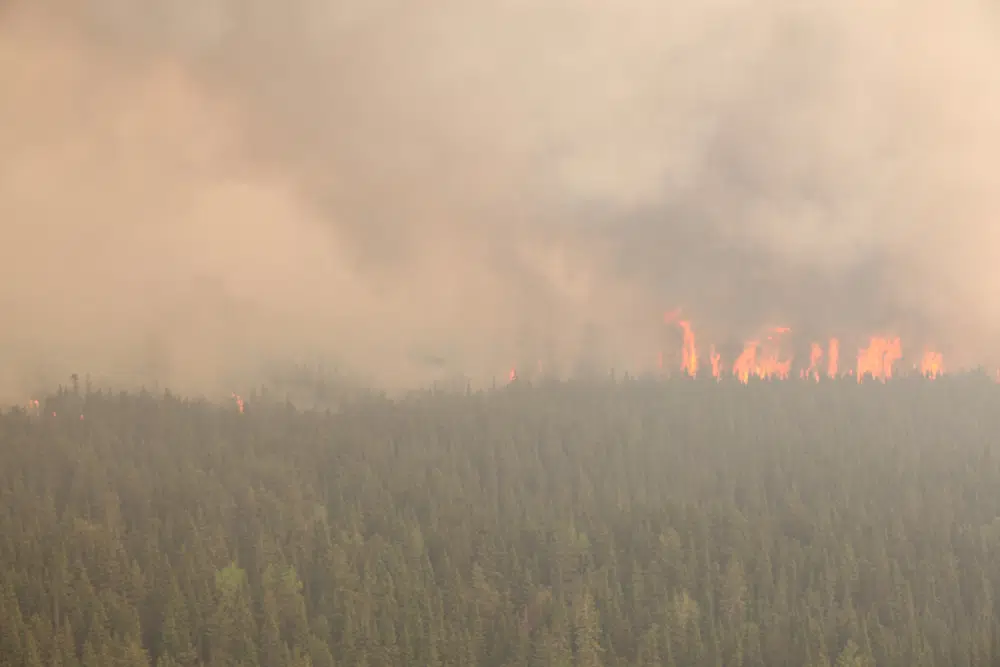
A forest fire burns in the Kirkland Lake-Timmins fire district in this undated photo provided by the Ministry of Natural Resources and Forestry.
Smoky air is fueling conversations about the health impacts and links to climate change.
Several parts of Canada and the United States have been under air quality alerts in recent days due to smoke drifting from forest fires, many burning several kilometres away.
Kate Knuth, the founder of Democracy and Climate LLC, says longer periods of warm and dry weather are pulling moisture out of the air, spurring more wildfires across Canada. She says the recent smoke events aren’t likely to be isolated.
“We need to be learning to live in a changing climate,” says Knuth, “and dealing with wildfire smoke is, unfortunately, one of those things we need to learn to navigate.”
Health experts urge people to monitor conditions and avoid strenuous outdoor activities when the air quality is bad.
Dr. Laalitha Surapaneni, assistant professor at the University of Minnesota Medical School, says research on the health impacts of wildfires is beginning to emerge.
It is finding the smoke from forest fires containing particulate matter also found in fossil fuel emissions.
“And so, we know that particulate matter can cause cardiovascular mortality,” says Surapaneni. “It can cause the development of childhood asthma, and it’s also been linked to lung cancer.”
Surapaneni says the biggest concern is for vulnerable populations, such as those with underlying heart and lung conditions.
She says even healthier people can experience things like headaches and burning eyes. However, there are ways to protect yourself.
“The three top things would be, you know, limit time outdoors. If you do have to go outside, wear a well-fitting N95 mask. And then, try to create a clean-air room inside your house,” says Surapaneni.
That type of room blocks all outside air.
(Files from Mike Moen/Minnesota News Service)





Comments